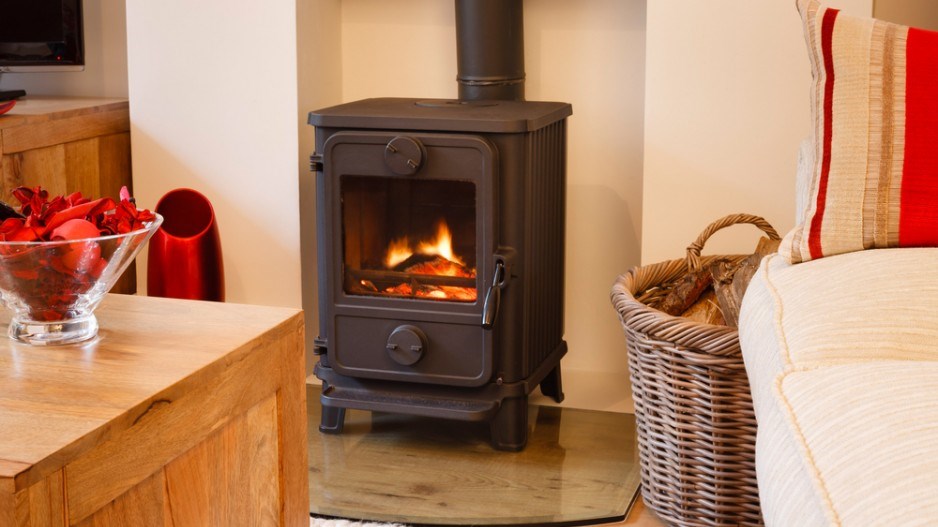Few things are more comforting on a cold winter’s night than a cheery fire in a fireplace or wood stove. But residential wood smoke causes 15% of B.C.’s air pollution and poses health risks, so the B.C. government is offering incentives designed to get homeowners to trade in inefficient old wood stoves for more efficient ones.
Metro Vancouver is receiving $11,000 from the provincial government to offer incentives to homeowners with older wood stoves to upgrade to cleaner burning ones or to switch to natural gas. It’s part of a $192,000 provincial grant program for 2013.
Metro Vancouver offers rebates of $250 to homeowners who swap old uncertified wood stoves for certified ones. It also offers $350 rebates for those who exchange woodstoves for natural gas stoves.
New emissions-certified wood stoves burn less wood and reduce the amount of particulates going into the atmosphere by up to 90%, according to a Ministry of Environment press release.
According to the newly launched Environmental Reporting BC website, which provides scientific data on things like land, water and air pollution, 15% of the particulate air pollution in B.C. comes from residential wood smoke (wood stoves and fireplaces).
And according to the Environmental Protection Agency in the U.S., wood smoke from fireplaces and wood stoves contains 12 times the carcinogens as an equal amount of cigarette smoke.
“The BC Lung Association is extremely supportive of the wood stove exchange program and our ongoing partnership with government and participating communities,” said Scott McDonald, the association’s executive director.
“Smoke created by wood stoves is associated with many respiratory problems that can seriously impact one's health, and we are pleased with the program's continued success in helping to alleviate health concerns by replacing old stoves with cleaner, more efficient appliances.”




